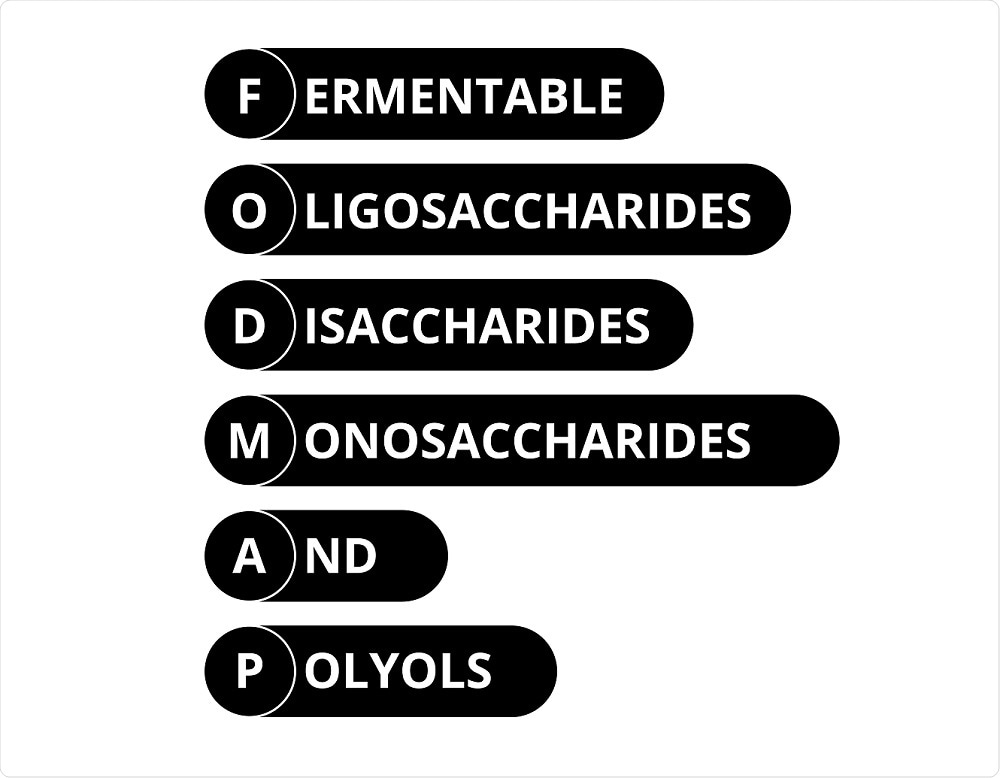Although researchers already knew that this diet is effective in patients with inflammatory bowel disease (IBD), this is the first randomized, trial showing that it is effective in reducing common gut symptoms, says lead researcher Selina Cox. “This improves health-related quality of life in patients with IBD when they are in remission,” she adds.
As reported yesterday in the journal Gastroenterology, Cox and team conducted a trial of a diet low in fermentable oligosaccharides, disaccharides, monosaccharides and polyols (FODMAP) in patients with IBD who were suffering from persistent gut symptoms, even though their gut inflammation was under control.
The researchers found that after just four weeks, symptoms such as bloating, abdominal pain and flatulence improved among patients who followed the low FODMAP diet after just four weeks, compared with patients who were placed on normal FODMAP diet.
What is IBD?
IBD refers to a group of illnesses where the gut becomes inflamed. The two main disorders are Crohn's disease, which can affect any part of the intestine and ulcerative colitis, which only affects the large intestine.
Symptoms of IBD include:
- Abdominal cramps and pain
- Watery or bloody diarrhea
- The urgency to have a bowel movement
- Fever
- Loss of appetite
- Weight loss
- Tiredness and fatigue
- Anemia
People can develop IBD at any age, but it generally develops between the ages of 15 and 40. As a chronic and incurable disorder, IBD is managed through lifestyle changes, medication, and surgery.
Anti-inflammatory and immune-modulating drugs can bring inflammation under control, but symptoms can still persist during periods of disease remission and have a large impact on a patient’s life.
The NHS says an estimated one in five people with ulcerative colitis have severe symptoms that do not improve with medication and up to three-quarters of people with Crohn's disease will require surgery to repair damage to their digestive system.
The condition affects about 300,000 people in the UK, some three million people in the US, about 85,000 Australians and, according to the Royal College of General Practitioners, it is only becoming more common.
The current study offers hope of a safe and cost-effective way to relieve symptoms among the thousands of people suffering from this condition.
Half of all patients on the low-FODMAP diet reported improvements
For the study, the team studied 52 patients with IBD and persistent symptoms despite their inflammation being under control with medication. The patients were randomly assigned to one of two groups: a group where a low FODMAP diet was followed and a group where a 'normal' FODMAP diet was followed.
Among patients that followed the low FODMAP diet, 52% reported adequate relief of gut symptoms after just four weeks, compared with only 16% of the normal FODMAP group. They also had a higher health-related quality of life scores than the normal FODMAP group.
The team also took stool and blood samples at baseline and at the end of the study to test levels of gut microflora, which revealed that patients on the low FODMAP diet had fewer Bifidobacteria. The researchers say this is worrying since this bacteria can be beneficial in IBD because it can reduce inflammation.
However, the team found that gut inflammation did not seem to increase among patients on the low FODMAP diet and overall there were no significant between-group differences in gut microbiome diversity.
 mkldesigns | Shutterstock
mkldesigns | Shutterstock
“A safe and cost-effective management option”
We carried out this randomized controlled trial to establish whether these common gut symptoms in patients with IBD in remission could be managed by the low FODMAP diet. Indeed, this could represent a safe and cost-effective management option."
Professor Kevin Whelan, Co-Author
Next, the team intends to study the effects of a longer-term low FODMAP diet and determine the effect of FODMAP reintroduction on intestinal symptoms and gut bacteria.
"In clinical practice, the low FODMAP diet is followed by a phase of gradual FODMAP reintroduction—it is important to establish what the effects of FODMAP reintroduction are on the gut and whether reintroduction reverses the bacterial changes that were observed during the low FODMAP diet," explains Cox.
National charity welcomes the findings
The charity Crohn’s and Colitis UK has welcomed the findings. Research program lead, Nikul Bakshi, said: "We really welcome these findings because research into food and IBD is seriously lacking, and the relationship is still poorly understood. It’s good to see positive results, and if the FODMAP diet can help alleviate debilitating symptoms for some people with Crohn’s and Colitis, this is promising.”
However, he did warn that FODMAP is not suitable for everyone with IBD:
The FODMAP diet is very restrictive and also cuts out some types of food that may be helpful in managing the conditions. We would always recommend people get advice from a qualified dietician before making changes to their diet."